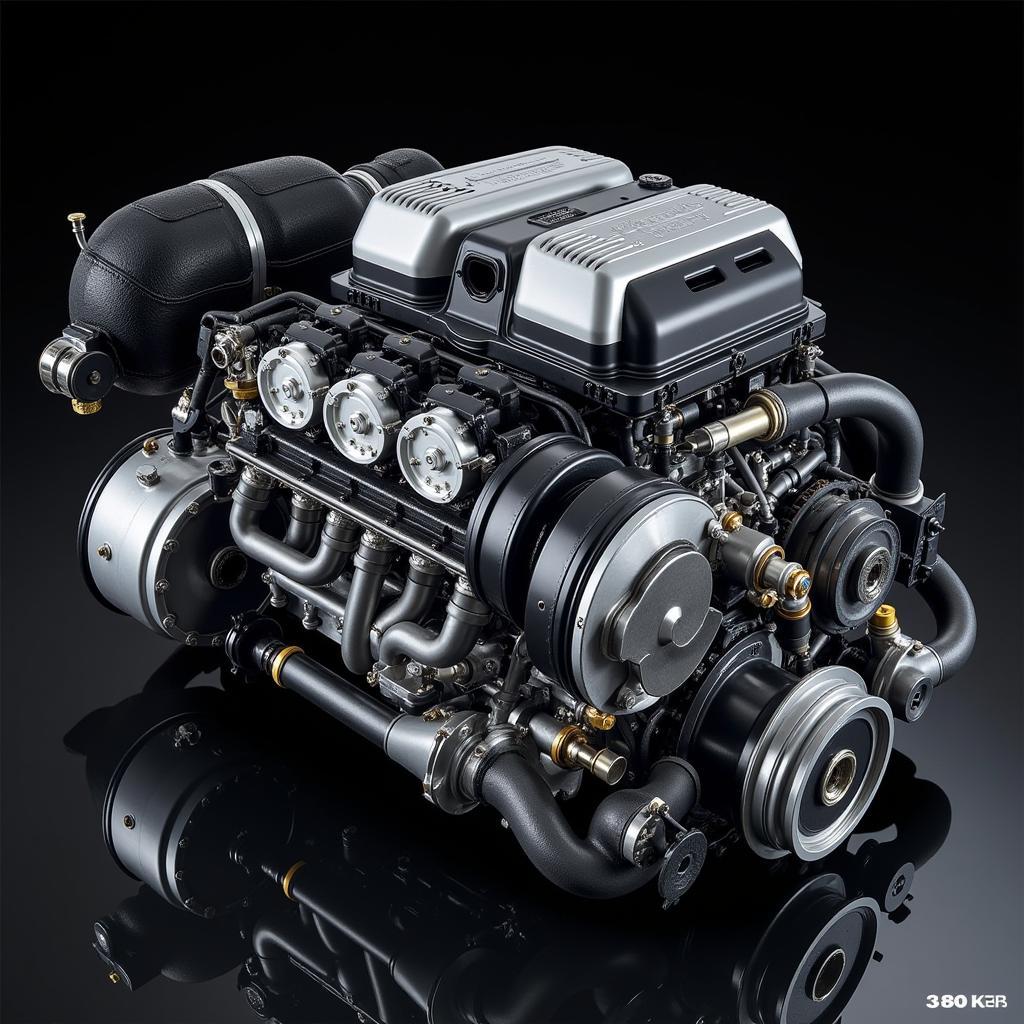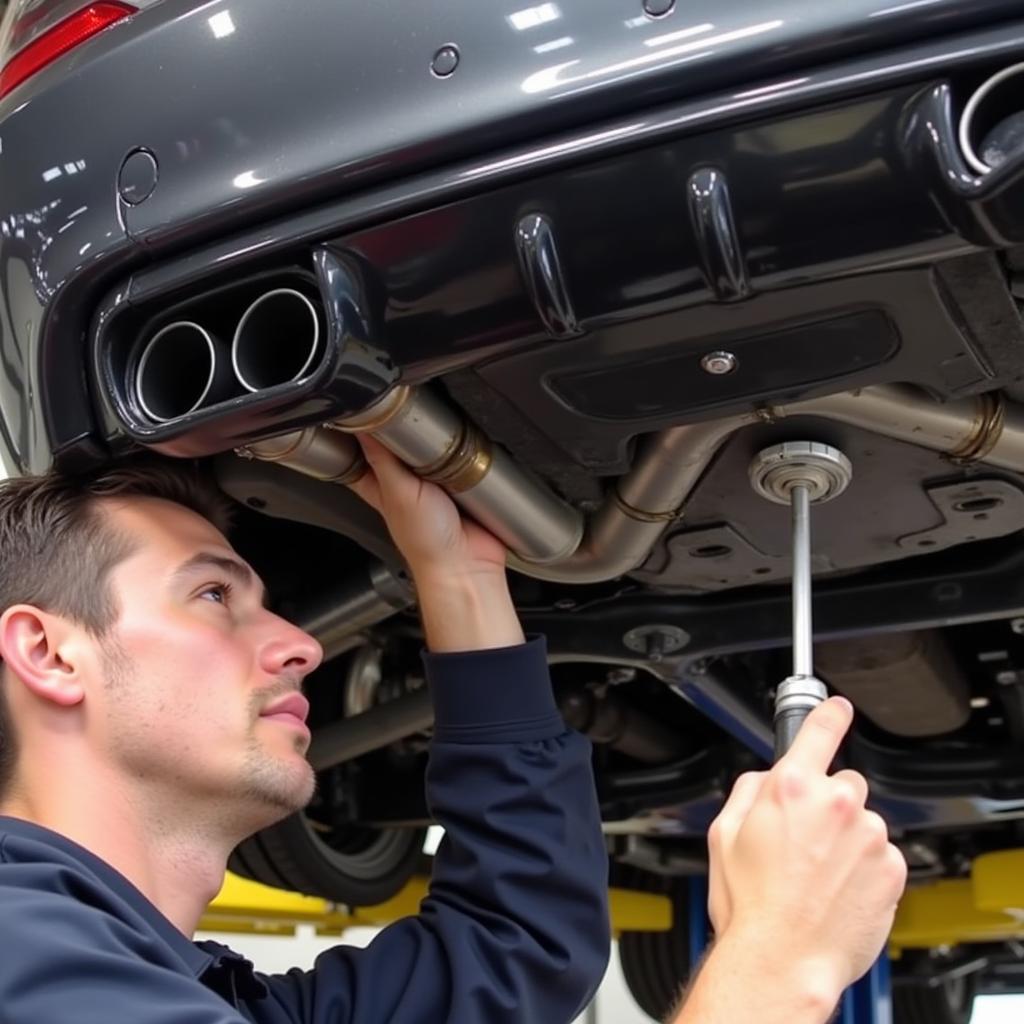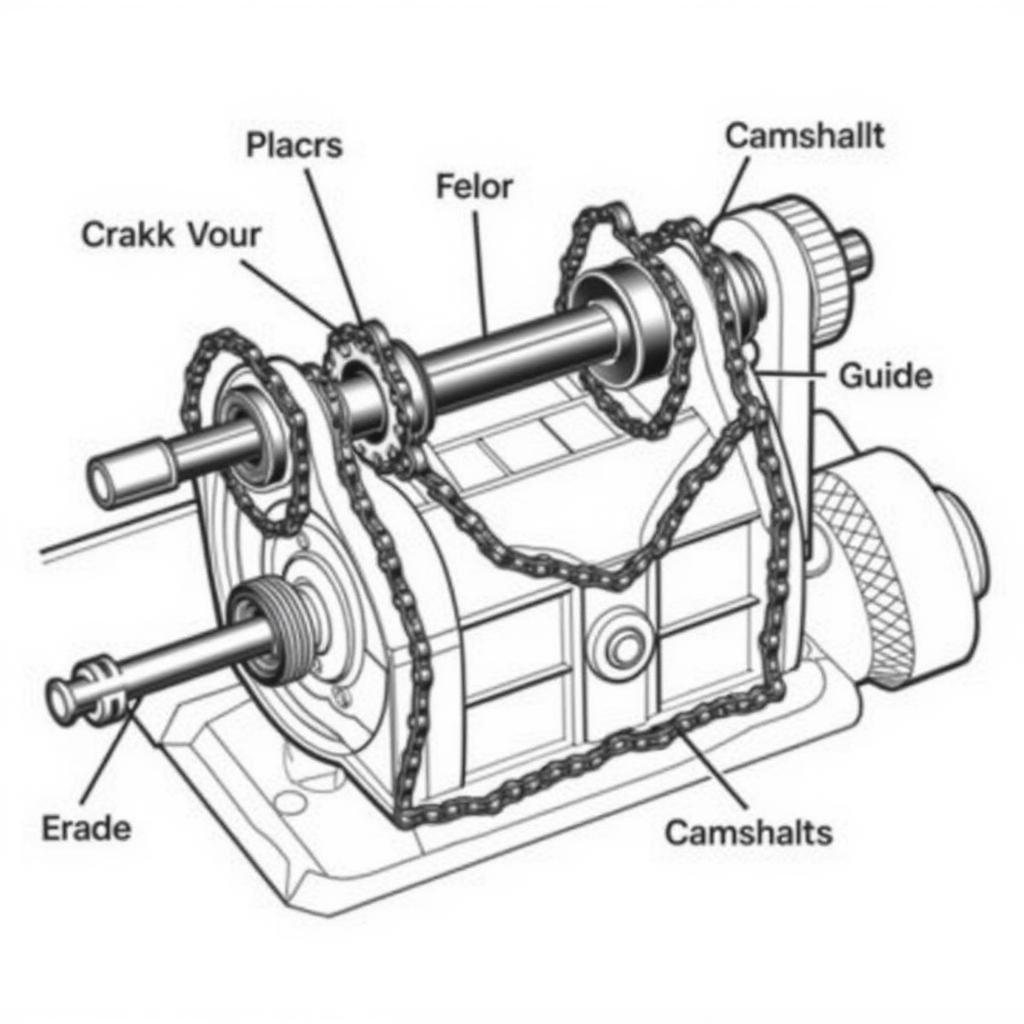The iconic roar of a BMW M5 is more than just noise; it’s a symphony of engineering and performance. This guide dives deep into the world of BMW M5 sound, covering everything from the distinct engine notes of different generations to troubleshooting common sound issues and enhancing your M5’s auditory experience.
Understanding the nuances of your BMW M5’s sound can help you appreciate its performance and diagnose potential problems. From the guttural growl of the V10 to the refined purr of the twin-turbo V8, each generation has a unique sonic signature. This guide will explore these variations, explain the technology behind them, and offer tips for maintaining and enhancing your M5’s sound. Whether you’re a seasoned M5 owner, a prospective buyer, or simply an automotive enthusiast, this guide has something for you.
Decoding the Roar: Understanding BMW M5 Engine Sounds
The BMW M5’s sound is a crucial part of its identity. Each generation boasts a unique engine configuration, resulting in a distinct auditory experience. The legendary E60 M5, with its high-revving V10, produces a screaming wail that is instantly recognizable. In contrast, the newer F90 M5, equipped with a twin-turbo V8, delivers a deeper, more thunderous rumble. Recognizing these differences is key to understanding the evolution of the M5’s performance and character.
The Symphony of the S65 V10: E60 M5 Sound
The E60 M5’s S65 V10 engine is a masterpiece of automotive engineering. This naturally aspirated powerhouse screams to a breathtaking 8,250 rpm, producing a high-pitched wail that is unlike anything else on the road. This distinctive sound is a result of the engine’s unique firing order and the carefully tuned exhaust system. The E60 M5’s sound is often described as exotic, reminiscent of a Formula 1 car.
 BMW E60 M5 V10 Engine Sound: A Symphony of Performance
BMW E60 M5 V10 Engine Sound: A Symphony of Performance
The Thunder of the S63 Twin-Turbo V8: F90 M5 Sound
The F90 M5 introduces a new era of M5 performance with its twin-turbocharged S63 V8. This engine produces a deep, thunderous rumble that is both powerful and refined. While it lacks the high-pitched scream of the V10, the F90 M5’s sound is no less impressive. The turbochargers add a unique whooshing sound to the mix, further enhancing the auditory experience. The F90 M5’s sound reflects the shift towards forced induction while still maintaining the aggressive character of the M5 lineage.
Similar to the 2007 bmw m5 sound, the later models also have unique sound characteristics.
Troubleshooting Common BMW M5 Sound Issues
While the BMW M5 is known for its impressive sound, certain issues can arise that affect the auditory experience. These issues can range from minor annoyances to serious problems requiring professional attention. Understanding these potential issues and their solutions can help you keep your M5 sounding its best.
Exhaust Leaks and Rattles
Exhaust leaks can cause a hissing or popping sound, reducing performance and potentially damaging other components. Rattles in the exhaust system can indicate loose parts or heat shield damage. Regular inspections and prompt repairs are essential to address these issues.
Abnormal Engine Noises
Unusual engine noises, such as knocking, ticking, or whining, can signal underlying mechanical problems. These noises should be investigated immediately to prevent further damage. Diagnostics and programming might be necessary in such cases.
 Inspecting the BMW M5 Exhaust System for Leaks and Damage
Inspecting the BMW M5 Exhaust System for Leaks and Damage
Enhancing Your BMW M5’s Sound
For those seeking to enhance their M5’s sound, several options are available. Aftermarket exhaust systems can significantly alter the sound, offering a more aggressive or refined tone. Performance modifications, such as intake upgrades, can also contribute to a more pronounced engine note. It’s crucial to choose modifications that are compatible with your specific M5 model and comply with local regulations. This is similar to the sound system in the 2013 bmw m5 sound system.
The 2010 bmw m5 sound is a good example of the powerful V10 engine.
Why is my BMW M5 making a strange noise?
Several factors can cause unusual noises in your BMW M5. These range from minor issues like loose exhaust components to more significant problems with the engine. A proper diagnosis is essential to identify the root cause.
In 30-40 words: Strange noises can stem from exhaust leaks, worn-out parts, or internal engine issues. Consult a specialist for accurate diagnosis and repair.
What does a healthy BMW M5 engine sound like?
A healthy BMW M5 engine should operate smoothly, with a distinct but refined sound depending on the model year. Any unusual noises like knocking, ticking, or excessive whirring should be investigated.
In 30-40 words: A healthy M5 engine sounds smooth and powerful, with a distinctive exhaust note. Unusual noises indicate potential problems and warrant immediate attention.
Conclusion
The BMW M5’s sound is an integral part of its legendary status. Whether you prefer the high-pitched wail of the V10 or the thunderous rumble of the twin-turbo V8, understanding and maintaining your M5’s sound is essential to enjoying the ultimate driving experience. This guide, with an in-depth focus on “bmw m5 sound”, provides you with the knowledge to appreciate, diagnose, and enhance your M5’s auditory signature.
As with the 2008 bmw m5 sound, maintaining the car is important for preserving its sound quality. The bmw m5 2010 sound offers a distinct auditory experience.
For any assistance or further queries, please contact us via Whatsapp: +1 (641) 206-8880, Email: [email protected] or visit our workshop at 276 Reock St, City of Orange, NJ 07050, United States. Our customer service team is available 24/7.


